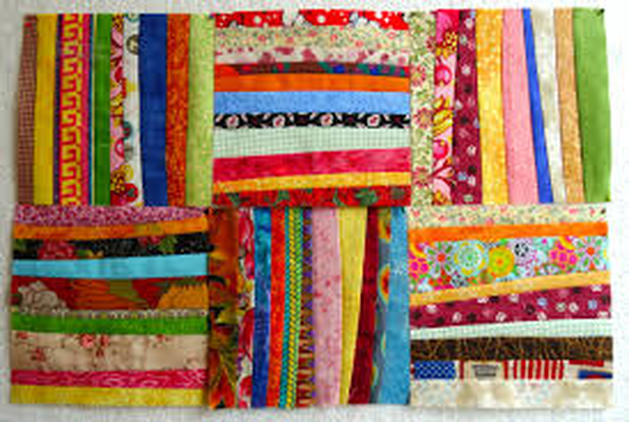Between too many students, a computer and projector that didn't really work for the better part of the year, and a window-less classroom that served as the only access point for the students in the classroom next door, it often felt like complete chaos to me!
Developing Relationships Keeps Kids in School Longer
If Bruce Ferguson says that a single caring adult can impact whether a child chooses to stay in school or become an early leaver, and that we have to develop relationships with young people where they feel their opinion is respected and valued, then needless to say, this goal was nearly impossible to accomplish with 120 students on my roster.
Interestingly, many teachers who have taught in a full rotary model seem to resist this change. I remember helping to facilitate the move towards fewer students having more time with one teacher when I served for six months as an acting vice principal a few years ago. It took surprisingly more convincing than I had thought it would to support teachers through that change to see the benefits for their students.
Specialists of Generalists?
The prevailing argument for a full rotary model seems to be that subject specialists are more passionate about what they teach, and therefore better able to teach middle school students. And to be fair, with my emphasis on MST, I learned a considerable amount of middle school math this year that I had not been quite so comfortable with the last time I taught grade 7 (the first two years of my career, where I merrily followed along in the textbook, generally trying to stay a page ahead, with the occasional influx of hands-on learning opportunities inspired by my then-resource teacher, one fantastic lady by the name of Julia Sarason).
Truly effective integrated teaching requires a high level of proficiency and knowledge in a number of areas. I believe it raises the bar for public education: Educators become intelligent, highly trained, well-read and collaborative leaders within their classrooms, facilitating student learning along multiple pathways. Students begin to see and explore the interconnectedness of things; their world becomes a bigger entity than the sum of its isolated parts.
Furthermore, the research shows (and my heart supports) that students running from class to class, teacher to teacher every 40 minutes can have devastating effects: The Pathways literature from Ontario notes that student-teacher relationships are a critical part of the learning experience. Many studies have shown that shifts in this relationship during transitions can create risks for students, which is why middle schools have such an important role to play.
But truth be told, I am dreading another year of superficial relationships with 120 students and their families, and I am really mourning the loss of language arts on my roster, especially in a multi-cultural context.
So what am I doing teaching math only to six different classes of students?
The Power of an Effective School Timetable
Well, when you're leading a school of 1000 students, change can be difficult. Many fine traditions are firmly entrenched in our school's existing timetable, traditions that allow our students to benefit from an excellent music program, as well as a robust range of phys ed activities, and tweaking things to benefit students in one way will invariably affect them in others.
Rotary? Or Not So Much?
Eager to support the goals of my school and with a view to convincing myself that rotary wasn't as bad as I thought it was, I set out to review at least three pieces of literature.
Unfortunately, I could not find much in the way of support for full rotary at the middle school level.
The research does indicate that introducing some rotary to get ready for secondary school is a good thing: "Elementary schools which introduce rotation systems were also found to better prepare students for transitions to secondary school (Schumacher, 1998)." But, is this research outdated? (As we consider more about what 21-Century learning looks like, some high schools are beginning to reexamine their long-held beliefs about scheduling!) And is there such a thing as "too much rotary"?
And what is the impact on students with additional challenges, for example, those for whom the language of instruction is new or not their first language, or those with special learning or behavioural needs?
If transitions from school to school are a challenge for students, mightn't they also be a challenge at the micro-level, within a school?
A Little Bit of Rotary...
One of the things that came up most consistently in my reading was the idea of block timetabling, that is, structuring the school day so that in general, classes were half a day or at least 90 minutes in length, which means fewer transitions throughout the school day. This provides teachers with more flexibility in responding to different students' learning needs rather than feeling compelled to rush through lessons at the cost of class and school climate or instructional effectiveness, and allows for "high amounts of instructional and engaged time" (Ubben and Hughes, 1992)
Even in schools where rich and varied "exploratories" (phys. ed., music and arts programs, etc.) were in place, a sort of modified block timetable was recommended in the literature, with large chunks of time dominating most days, and then some shorter (50-minute) rotary periods for part of the day, or on alternating days.
Three classes of students for a group of 4-5 teachers was another common theme; this model allows teachers to develop stronger relationships with each student, and enables teachers to work together on planning instruction, including flexible groupings in areas like math and language, were student needs may vary throughout the year. I see some of this in the Sci-Tech program at our school, which is a smaller sub-program with fewer teachers; they often collaborate on various plans with the students they are responsible for.
And what of my concern for the ESL students?
Interestingly, the Hamilton Project, a discussion paper on organizing schools to improve student achievement notes that "one of the most consistent findings in the teacher effectiveness literature is the benefit of on-the- job experience; recent research suggests that teachers’ experiences in specific assignments also influence how well their students perform."
Further, "new research on what makes an effective teacher of English language learners (ELLs) suggests that an individual’s prior experience teaching ELL students is one of the strongest predictors of his or her effectiveness in teaching future ELL students" (Master, Loeb, Whitney, and Wyckoff 2011)
I am someone who relishes working with English Language Learners and their families, and I enjoy collaborating with a committed team to meet their learning needs by integrating subjects and differentiating instruction. I have lots of experience in doing so. That makes me more likely to do a great job with those students, and -- if I were to continue teaching them -- more likely that they would succeed academically!
So, What Next?
During a recent leadership and equity conference I attended, we were encouraged to stand up for what we believe to be right, and push forward. With this goal in mind, I inquired whether my incoming principal might be open to having a conversation about my teaching package for next year.
I look forward to learning more from my new administrator, and I know that next year will be a good one for all of us.











 RSS Feed
RSS Feed